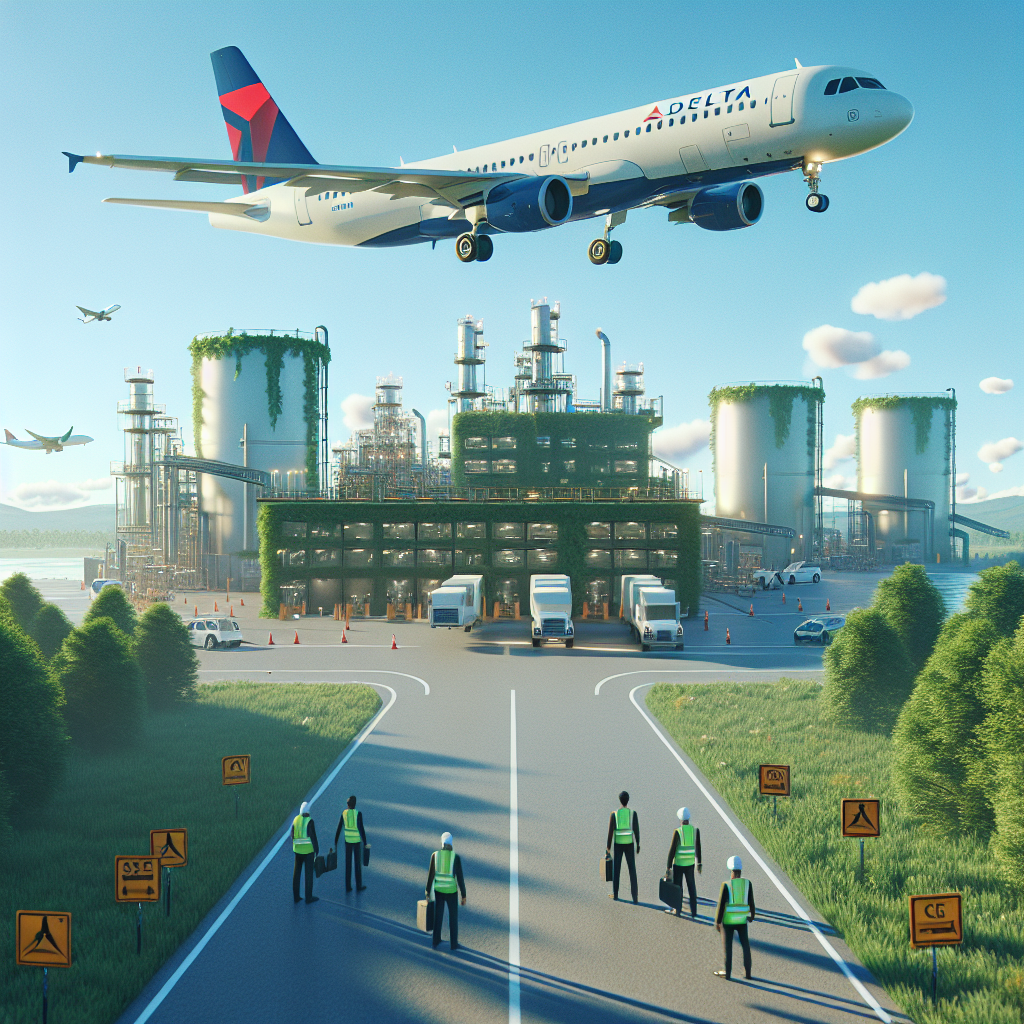Delta and Minnesota SAF Hub Announce New Sustainable Aviation Fuel Facility
In a landmark move towards greener aviation, Delta Airlines and the Minnesota Sustainable Aviation Fuel (SAF) Hub have announced the establishment of a new sustainable aviation fuel facility. This collaborative effort signals a significant step forward in the aviation industry’s ongoing battle against climate change.
The Commitment to Sustainability
Delta Airlines, one of the world’s leading airlines, has long been a frontrunner in the push for sustainable practices within the aviation sector. Underlining this commitment, the new SAF facility, located in Minnesota, is slated to be a game-changer in reducing carbon emissions from aircraft.
The facility aims to produce sustainable aviation fuel that can cut lifecycle greenhouse gas emissions by up to 80% compared to conventional jet fuel. This reduction is vital in helping the aviation industry meet its ambitious carbon-neutral goals.
Why Sustainable Aviation Fuel?
Sustainable aviation fuel is derived from renewable biomass and waste resources. Unlike traditional fossil fuels, SAF provides a cleaner alternative by significantly lowering the carbon footprint of aviation operations. Here’s why SAF is essential:
The Partnership
The collaboration between Delta Airlines and the Minnesota SAF Hub is a strategic initiative designed to scale up the production of sustainable aviation fuel. By combining Delta’s extensive industry experience and the SAF Hub’s innovative technological capabilities, the partnership is poised to set new standards in sustainable fuel production.
Both entities bring a wealth of expertise and dedication to the table, ensuring that the new facility not only produces high-quality SAF but also operates efficiently and sustainably. This partnership is a testament to the growing recognition that tackling climate change requires collective effort and innovative solutions.
Economic and Environmental Impact
The establishment of the SAF facility in Minnesota is expected to have significant economic and environmental impacts. Economically, it will create numerous job opportunities in the region, from construction and maintenance of the facility to operational roles once production commences. The facility is anticipated to inject substantial financial benefits into the local economy.
Environmentally, the production of SAF will contribute to the global reduction of aviation-related carbon emissions. The facility will adhere to stringent sustainability practices, ensuring minimal environmental impact during production and operation stages.
Challenges and Opportunities
While the benefits of SAF are clear, there are challenges that need to be addressed. One of the primary hurdles is the current high production cost of sustainable aviation fuel. Innovations in production technology and scaling up operations are crucial in bringing costs down to competitive levels.
There is also the challenge of ensuring a steady supply of raw materials for SAF production. This requires establishing reliable supply chains and maintaining the sustainability of feedstock sources.
Despite these challenges, the opportunities are vast. As more airlines and aviation stakeholders commit to sustainability targets, the demand for SAF is set to rise significantly. This growing demand represents a substantial market opportunity for SAF producers and presents an avenue for technological advancements in fuel production.
Future Prospects
The future looks promising for sustainable aviation fuel. With major airlines like Delta leading the charge, the aviation sector is likely to see a more rapid adoption of SAF in the coming years. This transition is essential in meeting global carbon reduction targets and ensuring the long-term sustainability of the aviation industry.
Moreover, as technological innovations continue to evolve, the efficiency and cost-effectiveness of sustainable aviation fuel production are expected to improve. These advancements will make SAF more accessible and feasible for widespread use in commercial aviation.
Conclusion
The announcement of the new sustainable aviation fuel facility by Delta Airlines and the Minnesota SAF Hub marks a significant milestone in the journey towards a greener aviation industry. By embracing sustainable practices and investing in innovative solutions, the partnership sets a strong example for others to follow.
As the global push for environmental sustainability intensifies, initiatives like this SAF facility underscore the importance of collaboration, innovation, and commitment in achieving a carbon-neutral future. The aviation industry, with leaders such as Delta at the helm, is well on its way to a more sustainable and eco-friendly future.
For more information on local initiatives and services, visit Snow plowing in Minneapolis MN.



